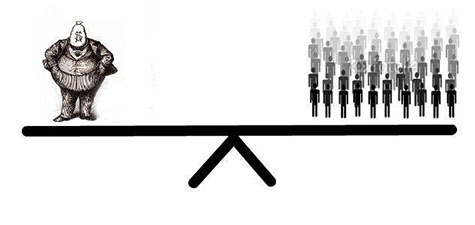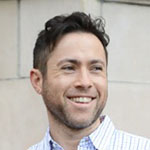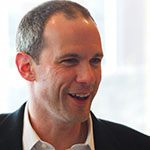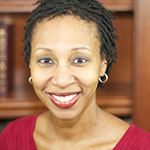
Melvin Oliver, PhD, a noted scholar on racial disparities who earned a doctorate in sociology here in 1977, will kick off the department’s inaugural semester with a lecture on “Income and Wealth Inequality” at 4:30 p.m., Wednesday, Sept. 16, in Anheuser-Busch Hall. For more information on the lecture, which is free and open to the public, visit the Assembly Series website.
Issues of income inequality are a primary focus of the department’s leadership, including chair Steven Fazzari, PhD, the Bert A. and Jeanette L. Lynch Distinguished Professor of Economics in Arts & Sciences; and associate chair Mark Rank, PhD, the Herbert S. Hadley Professor of Social Welfare in the Brown School.
Fazzari’s research suggests the growing income gap between the nation’s rich and poor is a big factor in the economy’s sluggish growth since the Great Recession. Rank’s work suggests the likelihood of an individual American experiencing relative poverty at least once in their lifetime is surprisingly high.
Rank and Fazzari recently co-taught an interdisciplinary course on the “Economic Realities of the American Dream,” which explored how modern economic and social factors are making the Dream much more difficult to achieve.
While the Oliver lecture will be its first public event, the department has been bustling with activity this fall, including new courses being offered by the department’s first cohort of faculty recruits.
Jake Rosenfeld, PhD, associate professor of sociology, is teaching an undergraduate course titled, “Sociology of Race and Ethnicity,” which explores issues at the intersection of economic, political and racial/ethnic stratification, including a focus on these issues in St. Louis.
David Cunningham, PhD, professor of sociology, is teaching an undergraduate course, “Order and Change in Society,” which examines how individuals and groups in communities, schools and other social networks mobilize to push for change in society and the barriers thatlimit their efforts to alter the status quo.

Adia Harvey Wingfield, PhD, professor of sociology, is teaching an upper-level social theory course that explores how sociologists combine contemporary perspectives on feminism, concepts from the classical theories of Marx, Weber, and Durkheim, and other theoretical frameworks to understand current social experiences and trends in modern society.
Sociology courses offered this semester have filled up quickly, with more than 50 students enrolled in the undergraduate courses taught by Cunningham and Rosenfeld. About 20 students have enrolled in the upper-level course taught by Wingfield.
For now, Cunningham, Rosenfeld, Wingfield and sociology postdoctoral research associate Peter Owens are sharing a suite of four offices carved out of temporary space on the fourth floor of Seigle Hall. Plans are underway for the construction of a more permanent space for the department on the second floor of Seigle, which will include more than 10 faculty office spaces, Fazzari said.

In an effort to being filling those spaces, Fazzari and his three current faculty recently spent a good deal of time meeting with potential faculty hires at the annual meeting of the American Sociological Association in Chicago. They’ve seen strong interest in the positions from recent sociology doctoral graduates and those who will complete their PhDs in the spring, Fazzari said.
The department hopes to fill two more junior faculty positions in sociology before the start of fall 2016 academic semester.
“Our commitment to being a viable sociology department with at least ten sociologists on campus by the end of year five of this program,” Fazzari said. “We hired tenured faculty in the first round because it’s hard to make tenure decisions for junior faculty without having some senior faculty here who have the expertise to evaluate the work being done by junior recruits.”
The goal is to recruit new hires with research interests that complement those of current faculty, including such areas as economic inequality, social movements and the sociology of race and gender issues.

“We’re looking for research interests that tie into existing strengths at the university, but we’re very much open to considering strong candidates that might help us move us expand into new areas, such as crime and criminal justice,” Fazzari said.
While there are still many unknowns in terms of where the department is headed, getting potential faculty interested in joining the process “has not been a hard sell,” Fazzari said.
“For many young sociology scholars, this new department represents a unique opportunity to get involved in building something from scratch, to become a big part of something that has potential to make important contributions to the field,” he said. “There’s no other place in the country that will be hiring ten sociologists in the next five years.”